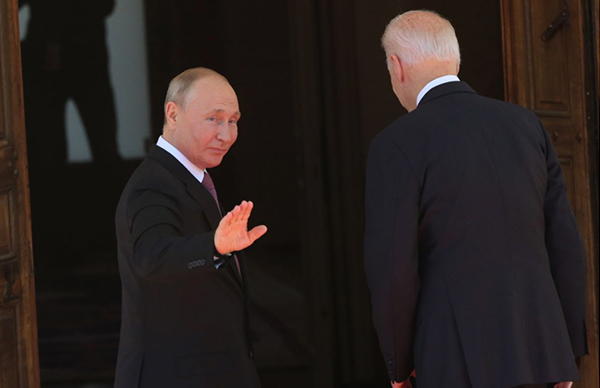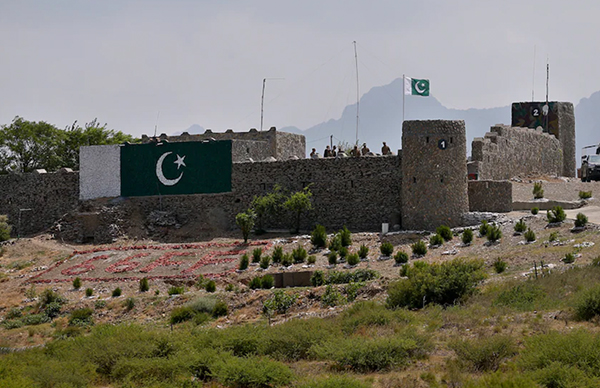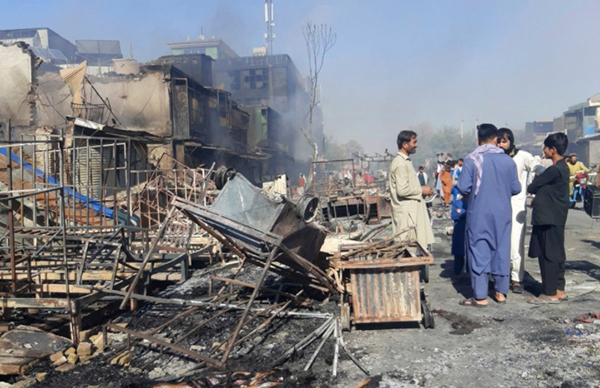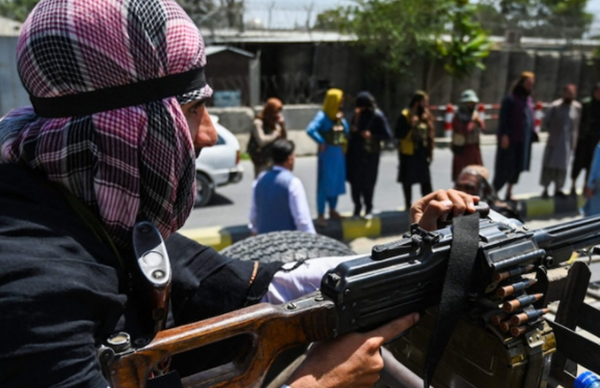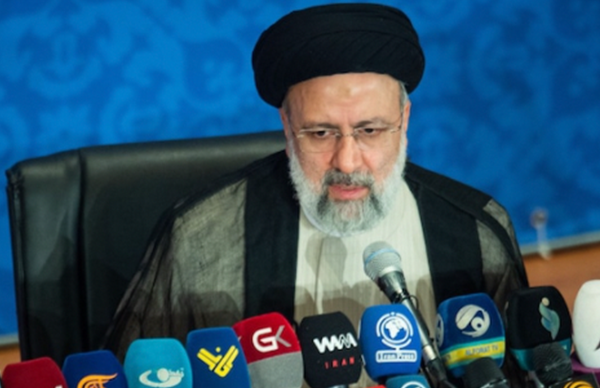By Dr. David Wurmser
July 29, 2021
In a summer of brewing crises, from Havana through Caracas to Tehran (and other Iranian cities), Lebanon’s descent into crisis tends to be overlooked. And yet, it is part of a larger picture in which our greatest adversaries are on the ropes (Communists in Cuba and Venezuela, the Khomeinist regime in Iran, and Hizballah in Lebanon). While this is clearly a fortuitous moment, the emergence of which can properly be attributed to the policies of the previous administration, the Obama administration’s catastrophic failure to turn previous crises into opportunities should provide a cautionary tale. These crises can be weathered by our adversaries or hijacked by others as dangerous (or even more so) if the United States abandons the underlying policies that led these inimical regimes into their cul de sac. There is no predetermined arc of history, for better or worse: decisions matter. And this administration is dangerously close to fumbling.
The dream palace of Arab nationalism
Lebanon and to some extent Syria have always been both a bellwether and symbol of regional politics. The land of the cedars is an incubator of Arab politics, and thus its history is the first draft of the regional history of ideas. And nobody embodies the swirling development of ideas better than my old doctoral advisor, Fouad Ajami, who himself is a child of Ansar from the heart of the Jabal Amel Shiite community in Lebanon’s embattled south. The progression of his books are like a roadmap to understanding the ebb and flow of both the content and geography of ideas in the region.
In The Arab Predicament (1981), Ajami reflected upon the crises of Arab nationalism. It promised to deliver the great renaissance of the Arab world. Instead, it suffered its most decisive and humiliating defeat in 1967 at Israel’s hands. While in the West, the 1970s may have been the heyday of admiration for the international symbol of Arab nationalism – the Ray-Ban bespectacled Yasir Arafat – those in the region understood something was dying. For those who cared to see, Arafat’s expulsion from south Lebanon in 1978 and Beirut in 1982 marked the end of his Arab nationalism.
Courting Arab nationalists remained the foundation of policy in Western capitals (and still does via the Oslo peace process obsession) – with the exception of the great scholar of the region, Bernard Lewis, who was the first westerner to discern the resurfacing of Islam as politics. But the rubble of Arab nationalism was not given to reconstruction and instead yielded new forces. Fouad Ajami captured the final tortured moment and despairing departure of the soul of the idea in The Dream Palace of the Arabs (1999), and the immense swath of destruction of Arab society left regionally in its place.
The resurfacing of Islam
The new lingua franca of Arab politics was a return to authenticity of the old through the language of Islam. While a few lingering leaders still held a corner of the stage for their final performance, the stage itself was now dominated by actors vying to control the legacy of the mystic past for control over the clouded future.
Arafat knew better than we the region’s trajectory. Arafat himself was already reconnecting to his underlying Islamic essence. When the Islamist threat challenged and then seized power with the rise of Khomeini in Iran, exposed its brutality in the seizure of the great Mosque in Mecca for a month, and revealed its penetration of the structures of power in the murder by the Gamaat al-Islamiyya in Cairo of President Sadat, Arafat was already a step ahead. He beat a path to Tehran – the first foreign “leader” to do so. And his top aid in Force 17, Emad Mughniya, became the developing architect of Hizballah. And Arafat asked of his Libyan allies that the leader of the Lebanese Shiite Awakening, Musa al-Sadr, be eliminated – probably at the behest of the Iranian Revolution, since such a charismatic and potent Shiite leader with greater credentials and a stronger claim to standard-bearing than the upstart Iranian regime posed a grave threat to Khomeini’s leadership. Lebanon again played the unwelcome role of regional incubator.
The first act was actually quite early, and took place in Lebanon. Indeed, the first act was the story of Musa al-Sadr. The tumultuous transition from the heady seduction of Arab nationalism — which though in most of the fertile crescent was a veiled form of Sunni dominance that nevertheless still drew the imagination of young Shiites — to a “Shiite Awakening” was captured with heart-tugging empathy and brilliance in The Vanished Imam (1986). Here were two ironies wrapped up in one: First, the return to Islam, with which the region and outsiders alike have had to contend for the last three decades, arose not from the heart of the Sunni world, but from the suppressed, backward and impoverished Shiite hamlets of southern and eastern Lebanon. Second, this Shiite Awakening came far from Lebanon, and not from the heart of Shiite Islam — Iran and southern Iraq. It manifested itself years before the Iranian revolution, which has ever since tried to claim fathership over an older and more tried “son.” Lebanon’s Shiite leadership thus controlled the claim to authenticity and true fatherhood over the Shiite Awakening – a claim which was so deeply and jealously sought by the Iranian revolution. True, the Shiites extended the tentacles of Iran’s central nervous system to the Levant, but as it extended Iranian power, it also profoundly threatened it. Iraq’s Shiites could have represented this duality as well, but they lived invisibly under the withering hand of Saddam. For that moment at least, the ownership and future of the Shiite Awakening was to be battled out in the south of Lebanon, not in Iraq’s ancient mosques in Kufa, Khadimain, Najaf and Karbala.
The Iraq war
For Ajami, that moment ended in 2003 when the inevitable angel of death, dressed as the American armed forces, claimed the lingering ghost of Arab nationalism in Baghdad. Ajami, being a Lebanese Shiite, understood that as much as this might influence the region, the battle over the Shiite Awakening had shifted from Jabal Amel to the cradle of Shiism itself in Iraq. Iran had spent two decades subjugating with tenuous success the competing center of the Shiite Awakening in Jebel Amal only to find itself now facing a far greater, closer and more serious competitor in an untethered Iraq. The prospect burst onto the Arab stage that at least a Shiite corner of it might find a better future out of Arab nationalism’s rubble.
Ajami captured in The Foreigner’s Gift, that brief ambivalent moment unleashed by the Iraq war in which the hope of freedom was at the same time haunted by fear. Iran despaired of facing this new Shiite challenge coming from the cradle of Shiism, so it was inevitable that it would launch its must-win war to control the Shiites of this newly liberated realm. Ajami in this book passionately echoed a century earlier when the works of Polish expatriate writer, Joseph Conrad, captured this tension between brutality, despair and hope in an unhinged political environment. Ajami also understood that Western eyes failed to see this battle over the soul of Iraqi Shiism – echoing the same battle over ownership of authenticity which Lebanon’s Shiites had posed.
Iraq’s Shiites were both a threat and a weapon for the West. They could be either the tentacle of Iran’s schemes or a dagger plunged into Iran’s heart. But the West’s elites, schooled almost exclusively in the Sunni narrative, could not fathom the existence of this internal Shiite battle nor the magnitude of its stakes. So with historic clumsiness, the West’s elites – especially the British Foreign Office and the American Foreign Service — sought their peace with Iraqi Shiites by preemptively surrendering them to Iran, ensuring the defeat at once of both themselves and of Iraq’s Shiites who so intrinsically threatened Iran’s revolution. Along with the surrender came the belief that Iraq could only be properly stabilized by accomplishing a larger accommodation of Iran regionally—giving birth to the two decade attempt now to invent Iranian-regime moderates and to pursue a nuclear understanding with it. A very different story could have been told, one which might have led to a very different Iran, but wasn’t.
Still, Ajami understood that the vast wasteland left by Arab nationalism was still waiting to be filled, and that the fragile order the foreigners broke was not easily restored. And the struggle between the forces of chaos and restoration shifted yet again to Beirut and Damascus. Instead of seizing control of the forces of chaos and change to ensure they deliver a shift in a favorable direction, Western elites sided with the forces of restoration, while at the same time insisting that the agents of restoration be changed. That was akin to validating the goal of restoring the old communist order in eastern Europe, but at the same time demanding that the leadership be changed to one more palatable. But the result of this muddled perplexity was that the West again imposed irrelevance on itself. The battleground now shifted between the old order’s elites – Assad and Russia – their uncomfortable ally – Iran – and the new parade of Khaliphs, from bin Ladin through Zarqawi and al-Baghdadi to Erdogan.
The collapse of Syria was described by Ajami as the clash of two immutable forces – the people shaking off their dictator and the regime determined to survive — in his book The Syrian Rebellion (2012), but he also quickly understood how regional geopolitical forces had reasserted themselves in the Levant and turned this clash in Syria, Iraq and Lebanon once again into their battlefield in his book, Struggle for Mastery in the Fertile Crescent (2014). The history of the fertile crescent has been written ever since by the interplay of these actors.
The question of Saudi Arabia
Ajami understood that if chaos was to be yielded to the new Khaliphs in Ankara and Deir Zuheir and their nostalgic imperial schemes, then there was to be a preference toward restoration, but it had to lay on a path to greater calmness than reversion to the old order and its masters in Moscow, Damascus and Tehran. He looked to those who withstood the charms of Nasser, the dynamism of Tehran or the new beacon of Ankara. He looked to an unlikely place. He looked south into the Arabian peninsula, which hitherto had been a desert in the geography of terrain and ideas other than the dangerous ideas of Salafism with which the Kingdom had now broken. Perhaps Ajami understood it was destined that a restoration based on some sort of change might yet come from this new periphery rather than the core.
Ajami wrote Crosswinds: The Way of Saudi Arabia in 2010, though it was published after his death in 2020. This itself was a comment on the state of Arab political thought: it was becoming so impoverished as a whole – and the intellectual heartland of Arab thought in Beirut and Damascus so stagnant — that the history of Islam and Arabdom was being written either in the non-Arab capitals of Ankara and Tehran or was being surrendered to mediocre secondary franchises in the Arab world. Islam itself, he notes, was moving in that direction, where the generation of fatwas and other religious decisions moved to “Shaykh Google” and populist, unrefined religious leaders, while traditional Islamic elites were increasingly relegated to being the Islamic equivalent of “Dear Abby” and commenting on issues of sexuality and sorcery.
Saudi Arabia seemed an unlikely place for intellectual movement at the time. It was a land of harshness which Ajami argues induced a conservative retrenchment into a system that leaves room for those that stray and seek their own path, but ultimately absorbs them. The irony, he noted, was that the very harshness of the land and environment produced a society of rules, but also found patient accommodation of those that strayed from the rules. The loner always returns when he finds that the harshness of the environment leaves no room for the loner.
And yet, it was in the chaos of the Arab world and the rise of Shaykh Google that the outside world laid siege to the Saudi realm. As Ajami put it, “once upon a time, Saudis were consumers of the literature of Beirut and Damascus. Now they render their own world.” Commenting on Ajami’s opus, a friend of Ajami’s, Charlie Hill, noted that it emerged from the shock that Saudi Arabia had defined itself as a sovereign state and as the embodiment of Islam, and then discovered in the 1980s that these are two incompatible and the Saud were riding “two galloping steeds at the same time.”
Ajami never carried through this intriguing line of thinking before he died because the drama of the clash between the forces of collapse, of change and of brutality took his mind elsewhere shortly afterwards, back to Lebanon and Syria, and he put the book aside unpublished. But from its pages, it was clear that he seemed confident to the end that the Arabian Arabs would somehow reassert their ability to absord the wandering loners and survive. They would find their path, and maybe even this was the path for the region to survive. Perhaps it is a stretch, but one could in some ways even say that he envisioned the Abraham Accords a decade before they happened.
Exhaustion, reflection and retrenchment
In his last book before cancer claimed him, In this Arab Time: the Pursuit of Deliverance (both in 2014) Ajami retreated into a retrospective and wistful survey of the outstanding – but often solitary – liberal voices of the Arab century, as well as the creative but also the destructive voices of ideologies and their battles in the shadow of events shaking the Arab universe. The retrospective nature of the anthology reflected perhaps his sense of his own approaching death, but it also captured the mood in the region of an end of a journey of potential and promise that in its various forms all were drawing now to an end.
It was a sort of eulogy of the world from which he came but within which he could not think and live. There were no great ideas or hopes looking ahead, only reflection on the colorful parade of promising ideas that failed.
By 2014, the struggle between chaos and restoration were dominated almost entirely by the voices of brutality. The new order of the 20th century had sidelined the old order of centuries, but left only chaos in its demise. And the softer nature of Arab politics of the earlier part of the century, when overthrown leaders were sent into exile and debate tolerated within margins, had yielded by the 60s and 70s to the brutal new generation where public inhumanity became common and horrifically tortured murder of dissent became normal. Besieged and in retreat, as well as abandoned by the West under the Obama years, the calmer voices of order in the region had out of despair realized they had no choice but to find their own path to survival, but at the same time they knew that they lacked the power on their own to do so. When Ajami died, in parallel the region had reached a chaotic and very dangerous abyss. And it was no longer the stage of great ideas, but the soapbox of very small ideas, demagogues and elixir peddlers. And with it any shred of charm, dignity and toleration was gone.
Left at the margins of this maelstrom was what Ajami had discerned in the Saudi kingdom: a world of smaller ideas and street fare was emerging. And a system that learned not only to survive but to forgive and absorb those who have deviated. And as an earlier generation of Saudi royals learned to preserve their system internally and protect it externally by making their peace with the West to survive the turbulence of a region flailing to find its moorings, seduced by dream palaces, and besieged by great power rivalries, so too was this generation of royals willing to make their pragmatic peace with the rising local power, namely Israel, which for lack of choice began to fill the regional void that was opened by an America fatigued by the withering hopelessness of the region to which it sought to bring great hope.
Lebanon returns to center stage
But then Lebanon, which had always regarded its role as the crucible of Arab thought as a guilded curse, could nonetheless not let go. What was happening in Lebanon in the last years is again the first writing of the next chapter of Arab history.
With the demise of grand ideas seeking to paint a vast new regional canvas, communities which earlier had thought that their participation in the dreaming, sketching and painting of the contours of such grand new epochs would allow them a new, integrated and common identity. But now they instead found themselves again on the outside. Again, as always, they were alone, different, and threatened. Minorities, who had spent over a century trying to transcend who they were to join a greater whole now realized that their only path to survival lay in the other direction. They could do nothing else but remember who they always were and retreat into that shell. The world of sects, tribes, clans and ethnicities had never really left; the region’s elites – especially among the minorities who let their hopes overpower their judgment — only imagined they had. But those loyalties survived. They adapted themselves to the new vocabularies and also appropriately wore the dress of the latest fashionably dominant ideology in the cavalcade of ideologies. But in the end, those ancient loyalties and affinities were the only true safety and identity, so underneath it all, they remained the bottom line.
It was through the nexus of the rivalries of greater powers and the rampaging of franchised ideologues that these minority communities – especially those who lived along the seam lines of the fertile crescent — knew they were particularly precarious. And nowhere was this dynamic more early and clearly palpable than in Iraq, Lebanon and Syria in the last few years. And while these minority communities retreated into themselves to provide the illusion of safety, they also knew they had to seek a hand of support from a distance. Adrift in chaos, all cling to the familiar and scan the horizon to seek the ship of their salvation.
Israel was close, but uninterested in playing the role of savior. It had been scorched a generation earlier trying to navigate Lebanon’s communal politics, and the trauma of that adventure lingered. True, Israeli leaders nearly universally understand the imperative of preventing the subordination entirely of Lebanon and Syria to the region’s ambitious Ayatollahs, self-anointed Khaliphs and raw dictators. And yet, at the same time, there is almost as universally no Israeli leader who entertains the idea of trying to save either Lebanon or Syria, and perhaps the region more broadly, from itself.
Salvation, however, could not wait. A Hizballah stash of ammonium nitrate exploded and tore the center of Beirut to shreds in August 2020. The veneer of calm which masked a deeply unsettled reality yielded. Any semblance of national community crystallized into anger at the domineering outsider — namely, Iran and its local agent Hizballah. And in the anger, something new seemed to emerge among Lebanese: the hope no longer to be a regional incubator, but instead to be just left alone. Lebanese took to the streets to demand their quiet and the solitude to live their lives. Perhaps this is symbolic of the region; a popular desire emerging among many to just stick their heads down, live their lives and finally just be left alone – exhausted from a century of grand ideas that ushered in upheaval and grand destruction. We hear of such voices in other lands, and even among the people whose very existence was the product of the grand idea of Arab nationalism itself, the Palestinians. Even as far away culturally and geographically as Iran we hear Iranians demonstrating also to be just left alone: “not Gaza nor Lebanon nor Syria; Iran for Iranians” they chant on the streets of Tehran, Ahwaz, Isfahan and Tabriz and elsewhere in anger toward the Ayatollahs and their grandiose projects.
And yet, also symbolic of the region as a whole, the Lebanese were not to be indulged in their simple dream. Into their chaos immediately intruded all the ambitious actors, who redoubled their efforts to tear apart the region more broadly, especially Turkey (which saw an opportunity) and Iran (which sought to preserve its position). Lebanon was such a prize for decades, as well as the treasure chest to raid and the conduit to channel wealth, corruption, trafficking and laundering for the dark forces of the region. Money flowed from all corners of the earth through Lebanon’s dominated institutions to conduct all sorts of nefarious activities from Iraq to Palestine and further line the wealth of the region’s corrupt elites from Tehran to Ankara. It is an asset of utmost critical value for all the region’s malevolent actors and thus cannot be ceded under any circumstances since doing so could threaten their very survival, let alone their further enrichment and empowerment. These oppressors, thus, will subject Lebanon to any cost, no matter how horrifying, to stay in power. And unfortunately, entangling Israel to the south may be part, even their most important part, of their perverse toolbox to do so by changing the subject into an active regional war.
So now we have the two trends converging. On the one hand, the pillaging of Lebanon by outsiders, led by Iran and to some extent Turkey, has reached such a level that it has left the Lebanese people with nothing to lose. And in contrast, the populations are so broken that they wish nothing more than to withdraw from the region spiritually and just be left alone to mind their own business not in condominium, but in isolation.
But it is at this moment that Lebanon does offer hope. When a population has its back against the wall and nothing left to lose, the domineering outsiders face a collapse of their position to a potentially volcanic challenge from the street. That challenge is swelling as I write. So Lebanon now returns to where it has always returned: the laboratory concocting the region’s trends and ideas and the vessel through which the region’s actors pursue their ambitions.
Despite the hopes of Western elites, Lebanon’s institutions, from its government to its armed forces, stand helpless and powerless, as they always have, to the sway of those internal and regional dynamics. Indeed, it was always a western fantasy to believe that any institution, agreement and border, rather than leaders and ancient communal bonds, moved reality. To invest in those institutions as realities is to follow the leprechaun to the end of the rainbow.
So we are left with two immutable forces destined to clash: on the one hand, a restive and imminently erupting population fatigued of grand ideas and has nothing to lose, and on the other hand powerful regional actors with raw ambition who have proven they will act to win at all costs. And lurking in the wings are street ideologues with their small ideas selling their wares as well.
The squandering of opportunity
Which takes us back to the beginning. Our policies over the last several years have so weakened and besieged the nefarious actors in the region that the balance was tipped, and there was lent a modicum of hope to the despairing populations from Tehran to Beirut that there might be a chance to prevail, and the age of exhausted introversion might be brewing. That is what is playing out these weeks in the streets of Iran and Lebanon (and in Caracas and Havana too).
We have been here before in other places and other lands – for example, in central and eastern Europe in the late 1980s – and we have learned one thing in all those places: which side of the fork in the road is travelled between victory of peoples over their oppressors on the one hand and the gut-wrenching crushing of dreams on the other, is set greatly by the tone in the capital of freedom, the United States and its most powerful allies.
In other words, if Washington and its powerful ally to Lebanon’s south, unwilling as it may be, build on the policies of the past administration and understand the nature and stakes of the coming clash and embark on a robust policy of support of the Lebanese people, and if we support our ally Israel if attacked by Hizballah in their effort to change the subject, and if Hizballah is left tattered, or even better eradicated, then Tehran may reach the end of its road, not only in Lebanon, but in Tehran itself. The battle over the great prize of Lebanon has the power to set regional trends and crown regional winners, but also to bury regional losers.
And yet, Washington’s attentions are elsewhere. It is torn between not noticing, governed by obliviousness to currents on the ground, still obsessing over the dream palaces of old which long ago died in the Arab world (and their frameworks like peace processes), investing in institutions whose existences are empty (such as the Lebanese Armed Forces or the UN Interim Force In Lebanon), and unattuned – or misinformed — to the broad regional geopolitics which are playing out on the Lebanese stage. So, instead of placing our powerful hand to tip the scales toward the people of Lebanon, the United States is emerging as an eclipsing and powerful but utterly irrelevant non-player by its own doing, which is sad.
What happens in any one of these current upheavals in the seats of evil – Havana, Caracas, Tehran or Beirut – will set the tone for all the rest. But supporting the demonstrators does not seem to be the guiding principle of the current U.S. administration. Sanctions are lifted on Caracas and Tehran, weak platitudes are extended the freedom fighters in Havana, and dead silence is greeting the Lebanese and Iranians who clearly have had it. The summer of 2021 may yet be remembered more like the Hungarian uprising of 1956 and Prague Spring of 1968: the age of crushed hopes – but this time because the West could have at almost no cost helped those aspirations prevail, but instead chose to do nothing.
But if the collapse of Iran and the frustration of Turkey is deferred (not cancelled), it will come, but the issue is whether it comes now, or years in the future.
Conclusion
Lebanon has become once again the microcosm, or more accurately the herald of the region to come. The tragedy of Lebanon is that the Lebanon as we have known it for a century is about to implode and die. There is no rehabilitation or resurrection. Yes, there is a noble attempt to seize the state intact by the people of Lebanon who are unified by the desire to exorcise the demons hijacking them — as we all had briefly hoped after the horrific destruction of the exploded Hizballah depot last August. And yet, all that is left of that state – especially its internal structures of authority and power, including finance, education, culture and favor — is mastered by the region’s two greatest imperialists, Iran and Turkey. So total is their domination that their removal would leave not institutions worthy of inheritance, but only a vast, razed expanse of societal and governmental debris. And yet, avoiding that collapse only leaves these reprehensible actors in power and Lebanon still shackled to their continued predatory ambitions. It is an unenviable choice, but the former – the collapse of the Lebanese state — is the only path to true freedom. If there is to be change, Lebanon faces sadly the need for it to be revolutionary, not velvet, as we have learned in the last three decades in the former Soviet lands.
And yet, as will go Lebanon, so too will go the region. And thus, it is critical for the world on the outside, and the collection of forces under assault by Iran and Turkey (including and especially the United States which remains oblivious to its being their target), band together to stand with the Lebanese as they inescapably must pass through Mordor’s scorched Plateau of Gorgoroth on their way to build anew, not rebuild.
If successful, what will emerge there, as in its neighbor Syria, eventually is unlikely to be a truly Western sense of freedom, let alone democracy. But it will be an exhausted, perhaps impatient, and not necessarily unified introversion among a collection of besieged and defensive minority communities, tribes, clans and sects which is, after all, a good incubator for the generation of new ideas that the regio

